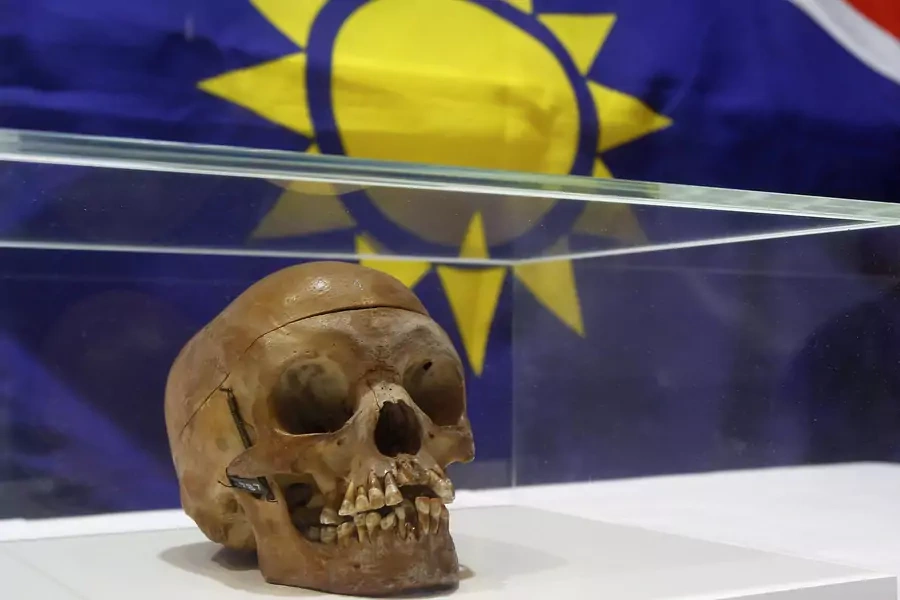Germany's 1904 Genocide in Namibia

In what is often called the twentieth century’s first genocide, the German colonial authorities, from 1904 to 1906, set out systematically to exterminate two ethnic groups, the Herero and the Nama, following an uprising in what was then German South West Africa and what is now Namibia.
The Namibian government is currently in talks with the German government to demand that Berlin officially acknowledge that the genocide took place, issue an apology, and pay reparations. While Germany has already acknowledged the genocide occurred, it rejects any legal responsibility. International law did not address genocide at the time, argue the Germans. According to the Wall Street Journal, a German diplomat said, “The German government uses this term (of genocide) in a historical-political sense, not in a legal sense.” Germany also opposes reparations, which legally “implies liability.”
More on:
Apologies and reparations for atrocities in the colonial past are complicated. The post-World War II German government has apologized and paid reparations to Jewish survivors of the Holocaust—but not to their descendants. French president Francois Hollande has acknowledged the suffering caused by the Algerian war, but did not formally apologize. Nor did UK Prime Minister Tony Blair fully apologize for British participation in the slave trade. Instead, he expressed “deep sorrow.” The Belgian government apologized for its complicity in the death of President Patrice Lumumba of Congo. In 2015, Japan reached a settlement with South Korea in which the Prime Minister formally apologized for the Japanese army’s use of Korean “comfort women” during World War II. Japan agreed to pay $9.5 million to the women who have survived. However, in the case of Namibia, after a century, there are no survivors, only descendants, so German authorities are unsure about what they might pay and to whom.
It is difficult to know how to acknowledge past atrocities, especially those that happened long ago. Yet the wounds continue, right up to the present time, and not just in Africa. The potato famine in Ireland and the highland clearances in Scotland still resonate today.
More on:
 Online Store
Online Store